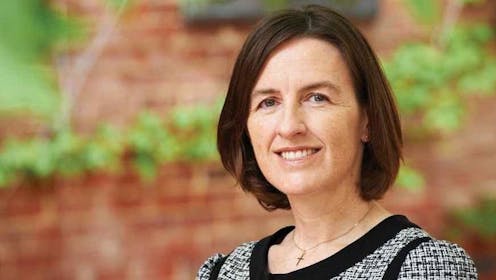ALP widens Newspoll lead to 54-46%, as Liberals choose conservative successor to Bishop
- Written by Michelle Grattan, Professorial Fellow, University of Canberra

The ALP has increased its two-party lead to 54-46%, in the 50th consecutive Newspoll the Coalition had lost.
The worsening Coalition performance, from 47-53% in the last three Newspolls, comes after last week’s sluggish economic figures and amid more bickering on the conservative side of politics, including pot shots from former prime minister Malcolm Turnbull and leadership instability in the Nationals.
The Coalition primary vote was one point down to 36%; the Labor vote was steady on 39%. One Nation was up 2 to 7% and the Greens remained on 9%. The poll was taken Thursday to Sunday.
The two-party swing is 4.4%; the government would be defeated with a loss of some 18 seats if the swing was on a uniform basis.
Scott Morrison continues to lead Bill Shorten as better prime minister in the poll, published in Monday’s Australian, but the gap has narrowed by 2 points to a margin of 43-36%.
In relative terms, there was little change in the leaders’ approval ratings.
Morrison had a 4 point boost in his net rating, with satisfaction in his performance rising a point to 43% and dissatisfaction falling 3 points to 45%.
Shorten had a one point increase in his satisfaction rating to 36%, and a 2 point fall in dissatisfaction to 51%.
The latest Newspoll comes as the Liberals in Curtin on Sunday selected Celia Hammond, 50, a conservative, as the candidate for the safe Western Australian seat, being vacated at the election by former foreign minister Julie Bishop.
The result is a rebuff to Bishop, who on Saturday had indicated she wanted a moderate to succeed her, saying “I find most electorates tend to elect someone who reflects their views, and so with Curtin it is seen as a moderate electorate”.
Bishop had been known to favour foreign affairs expert Erin Watson-Lynn, although she had distanced herself from the contest. Bishop immediately tweeted her congratulations to Hammond.
The preselection of Hammond, former vice-chancellor of Notre Dame University, is a victory for Senate leader and WA Liberal power broker Mathias Cormann and other conservatives in the state party.
Hammond beat Anna Dartnell, a resources executive, 51-28 with the other three candidates receiving only one vote each.
A centre-right independent, Louise Stewart, described as a “multimillionaire businesswomen”, has announced she will run for Curtin. She said voters in the seat were unhappy at how the Liberals had treated Bishop.
A poll released on Sunday by The Australia Institute, a progressive think tank, which asked people which current and former ministers they had heard of, found Bishop the best known.
In the poll of more than 1500 people, 82% had heard of her, followed by 77% for Morrison, 73% for Barnaby Joyce, former Nationals leader, and 68% for Home Affairs Minister Peter Dutton.
Only 39% had heard of Treasurer Joish Frydenberg, while just 28% had heard of Deputy Prime Minister and Nationals leader Michael McCormack.
McCormack’s leadership is currently under pressure, with Joyce attempting a comeback and some Nationals believing there should be a change even before the election.
One of the arguments being run against McCormack is that he is not cutting through to voters. Some Queensland Nationals are also agitated that the government has not announced financial support for a coal-fired power project.
McCormack stirred fresh controversy at the weekend when, attacking Labor’s 45% emissions reduction target, he said it would mean “forget night footy, forget night cricket, and you’ll have pensioners turning off their power because they won’t be able to afford it, and they will be shivering all winter, and they’ll be melting all summer”.
Linda Reynolds, recently promoted to cabinet, stumbled badly on Sunday in an interview on Sky when she rejected a quote about flexible wages, thinking it was from Shorten, only to embrace it when told it had been said by Cormann.
She was also confused on what the government’s policy was on underwriting coal-fired projects.
Meanwhile in the NSW election campaign, the state government is trying to minimise the degree to which the unpopularity of the federal government rubs off on it.
Morrison was present at the campaign launch of Premier Gladys Berejiklian on Sunday but was not a speaker. This contrasted with the launch of NSW Labor leader Michael Daley, also on Sunday, where Shorten gave an address.
Morrison said later: “It’s an all-state affair today, neither the former prime minister John Howard or I spoke”.
Authors: Michelle Grattan, Professorial Fellow, University of Canberra





